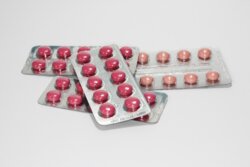Barrier Repair, Rosacea, Sensitive Skin: Products & Tips
Irritated and sensitive skin can be tricky to deal with – whether it’s because your skin is innately sensitive, or because it’s messed up from harsh products or harsh weather. I recently sat down with my friend Hannah English to talk about our favourite tips and products for irritated skin. She’s a pharmaceutical scientist and skincare content creator who shares …







